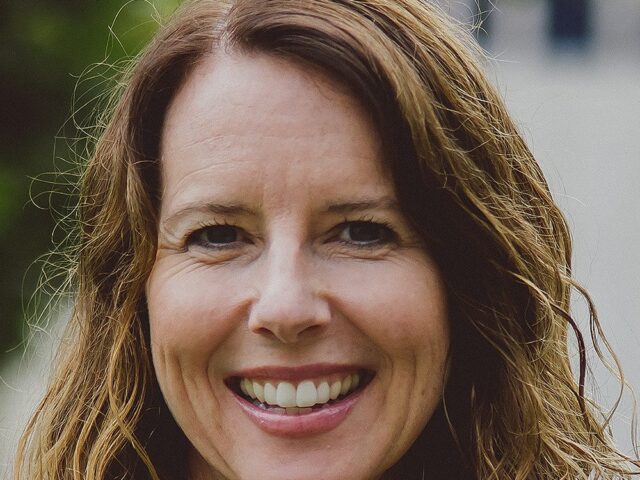How can the scope and quality of survey data be extended beyond what can be collected with questionnaires?
The Understanding Society study collects detailed social science information from a representative sample of the UK population at the household level. The study also runs a programme of research on innovations in data collection methods that is supported by the Innovation Panel: a separate sample that is used for experimental methods research and testing.
Data collected through survey questions are limited to information that respondents know and are willing to report, and that can be asked in a relatively short amount of time.
In this half-day showcase event, speakers will provide insight into research on methods that can be used to augment questionnaire-based survey data. We will hear from researchers working on mobile apps for data collection, biomeasures, digital trace data, consent to data linkage and event-triggered data collection.
How can mobile apps be used for data collection? What is the best way of asking respondents for consent to link their survey data to administrative records about them? How can we ask members of an annual panel to report on life events as and when they experience them? How can we encourage respondents to return blood samples? How representative are naturally occurring digital trace data that might be used for research, such as those generated by the UK COVID contact tracing apps?
Programme
14.00 – 14.05 Welcome
Chair: Professor Peter Lynn, Understanding Society / ISER, University of Essex
14.05 – 15.05 KEYNOTE: Making surveys smart: using apps and sensors to augment (or replace?) regular surveys
Dr Vera Toepoel, Statistics Netherlands
In this talk Vera will discuss various efforts from Statistics Netherlands to investigate how mobile apps and sensors can augment regular surveys. She will discuss different apps related to Time Use, Budget and Travel surveys. In addition, Vera will discuss the use of both research and consumer activity trackers in health surveys. Vera further explores the use of data donation and respondent’s willingness to participate in this type of research.
15.05 – 15.15 Break
15.15 – 15.45 Selectivity of digital trace data: The case of the UK COVID-19 contact tracing apps
Dr Daniel Horn, Understanding Society, University of Essex
The digitalisation of administrative processes, financial transactions, social interactions, etc means that there is a wealth of ‘existing’ data that can potentially be used for research, either instead of or complementing survey data. We use data from the Understanding Society COVID-19 study to examine selectivity of the UK population who used the COVID-19 tracing apps. We examine the different stages of selection (having a compatible device, installing the app, keeping the tracing on), biases introduced at the different stages, and the reasons for not installing the app. The results highlights groups in the population that are excluded due to the ‘digital divide’.
15.45 – 16.15 An experiment with feedback on blood analytes to increase the return of dried blood spots
Professor Michaela Benzeval, Understanding Society, University of Essex
Qualitative evidence suggests that lack of feedback deters participants from providing biological samples. This paper investigates this in wave 12 of the Understanding Society Innovation Panel. Households were randomised to receive feedback of blood results or not. The survey was also randomised into three arms – nurse interviewer, interviewer, web survey; in each arm participants were asked if they would provide a dried blood spot (but with different protocols). Being offered feedback had little effect on overall participation in the survey but did increase consent to provide a blood sample. The effect was highest among web participants, followed by interview participants and then nurse interview participants.
16.15 – 16.25 Break
16.25 – 16.55 How to maximise informed consent to data linkage? The effects of placement, context, and order of consent questions
Dr Jon Burton, Understanding Society, University of Essex
In this paper we experimentally examine the effects of the position of the consent request in the questionnaire, whether it is asked in the context of survey questions on the same topic, and the order in which multiple requests are asked, on informed consent. We use data from the Understanding Society COVID-19 Study fielded as an online survey in March 2021. The survey included three consent questions: 1) linkage to health data, 2) linkage to registry data on cancer and deaths, and 3) permission to send a blood test for COVID-19 antibodies.
16.55 – 17.25 “Did you experience any of these events in the last month?” Developing survey protocols for event-triggered data collection between annual interviews
Professor Annette Jäckle, Understanding Society, University of Essex
To improve data about life events, we would ideally like to ask subjective questions (e.g. about expectations, plans, wellbeing) and time-sensitive factual questions (e.g. about the different stages of a pregnancy) close in time to when the events occur. Throughout 2020 we fielded an experimental monthly Life Events survey on the Innovation Panel sample. In this presentation we report on the positive response of our sample members, on the different reasons why sample members did not participate (no internet use, missing contact details, non-response, and attrition) and on experiments that we have conducted to address these.
17.25 – 17.30 Close
Speakers
Dr Vera Toepoel (Head of Methodology, Statistics Netherlands)
Vera Toepoel is Head of the Methodological department of Statistics Netherlands. Her research focuses on online data collection. Topics include mobile surveys and sensor data (e.g. GPS, camera, accelerometers). She is the author of the book ‘Doing Surveys Online’ published by Sage (2015), the president of RC33 (Methods and Logistics) of the International Sociological Association and the president of the European Survey Research Association (ESRA).
Dr Daniel Horn (Senior Research Officer, Understanding Society, University of Essex)
Daniel Horn is a Senior Research Officer at ISER. He is involved in the Innovation Panel and COVID-19 studies within Understanding Society, particularly regarding reported technology use, digital trace data, and event-triggered data collection. Currently his research spans areas related to eHealth applications, hard-to-reach / hard-to-interview populations, and spatial data in survey design and analyses.
Professor Michaela Benzeval (Director of Understanding Society, University of Essex)
Michaela is Professor of Longitudinal Research and the Director and Principal Investigator of Understanding Society: the UK Household Longitudinal Study and Visiting Professor at the Institute of Health and Wellbeing at the University of Glasgow. Before joining ISER, Michaela was a Programme Leader, and Research Project Director of the West of Scotland Twenty-07 Study, at the MRC/CSO Social and Public Health Sciences Unit, Glasgow. She has also worked at Queen Mary University of London, East London and City Health Authority, the London School of Economics and the King’s Fund. Michaela studied economics at the University of Bath, and health policy and epidemiology, as well as a PGCAP, at the University of London, and gained her PhD, on income and health, from the University of Glasgow.
Dr Jonathan Burton (Associate Director of Surveys for Understanding Society, University of Essex)
Jonathan Burton is the Understanding Society Associate Director for Surveys and is responsible for the management of the survey and is involved in all aspects of data collection and fieldwork design for the main study, the Innovation Panel, the COVID-19 studies and other enhancements to the study. His research interests include informed consent to data linkage, the use of new technology to collect data, and experiments to reduce non-response and non-response bias.
Professor Annette Jäckle (Associate Director of Innovations for Understanding Society, University of Essex)
Annette Jäckle is Professor for Survey Methodology at the Institute for Social Research (University of Essex) and Associate Director for Innovations in Understanding Society. Current research projects focus on methods for event-triggered data collection, collecting informed consents for data linkage, and using mobile apps for data collection.



